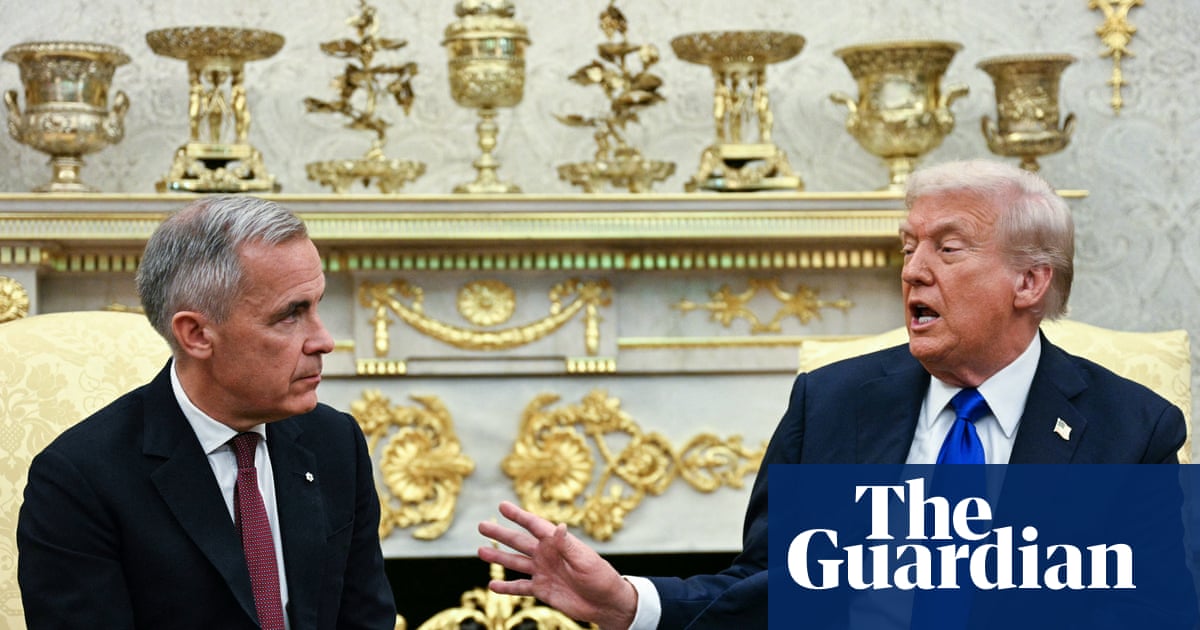Donald Trump is offering nine top universities a deal in which they would agree to advance conservative ideas on their campuses and commit to a range of other conditions in exchange for federal funding.
The extraordinary offer, which was sent out from the White House on Wednesday, presents the universities with a 10-point “compact”. As a sweetener, any university that signs up to the deal is promised “multiple positive benefits”, including “substantial and meaningful federal grants”.
In return, they must agree to provide a “vibrant marketplace of ideas on campus”. That involves enhancing the profile of conservatives and scrapping academic departments that “purposefully punish, belittle, and even spark violence against conservative ideas”.
Other demands include banning race or sex as factors in student admissions and hiring, a freeze on tuition fees for five years, and a cap of 15% on international undergraduate students.
The transactional nature of the compact is certain to intensify claims that Trump is using the might of the US government to crack down on free speech. Steps taken to chill speech in the wake of the murder of the rightwing activist Charlie Kirk last month have led to fierce criticism even from some conservatives and libertarians.
Although only nine universities have been presented with the “Compact for Academic Excellence in Higher Education” so far, the document implicitly menaces all other institutions in receipt of federal money. It specifically states that “institutions of higher education are free to develop models and values other than those” in the memo, but only if they give up all federal funding streams.
The compact, which was first reported by the Wall Street Journal, is the latest in Trump’s pressure campaign against top flight universities and colleges unleashed under the guise of combating campus antisemitism. The response from the institutions has varied, with some including Columbia University caving and agreeing to settlements and others led by Harvard holding firm.
Harvard is the only university to have sued the administration.
The nine universities that have been sent the compact were selected because they were considered to be “good actors”, May Mailman, a senior White House adviser told the Wall Street Journal. “They have a president who is a reformer or a board that has really indicated they are committed to a higher-quality education.”
The nine are: Vanderbilt University, Dartmouth College, the University of Pennsylvania, the University of Southern California, Massachusetts Institute of Technology, the University of Texas at Austin, the University of Arizona, Brown University and the University of Virginia.
Cornell William Brooks, a professor of public leadership at Harvard Kennedy School, decried the compact as a “weapon to exert command and control”.
Writing on X, Brooks pointed to the paradox that the “same administration that terminated federal grants to punish diversity groups at Harvard is now using federal grants to reward colleges for favoring conservative groups”.
Ted Mitchell, president of the American Council on Education which represents university and college leaders, told the Wall Street Journal that the implications on free speech were “horrifying”. He said: “Who decides if the intellectual environment is vigorous and open-ended? This is not something the federal government should be involved in.”

 German (DE)
German (DE)  English (US)
English (US)  Spanish (ES)
Spanish (ES)  French (FR)
French (FR)  Hindi (IN)
Hindi (IN)  Italian (IT)
Italian (IT)  Russian (RU)
Russian (RU)  3 weeks ago
3 weeks ago
























Comments